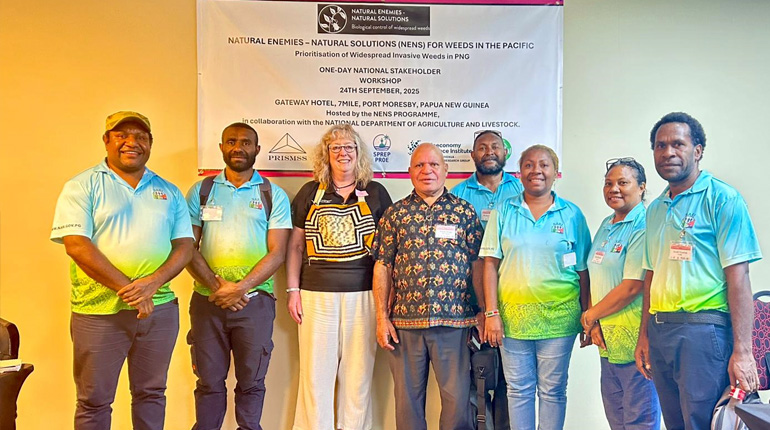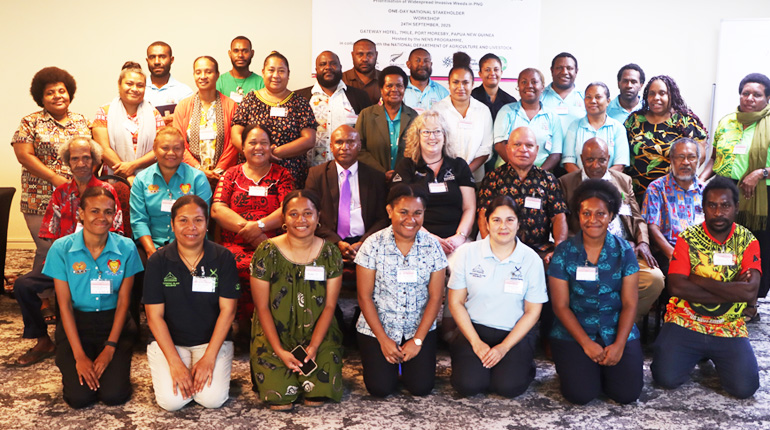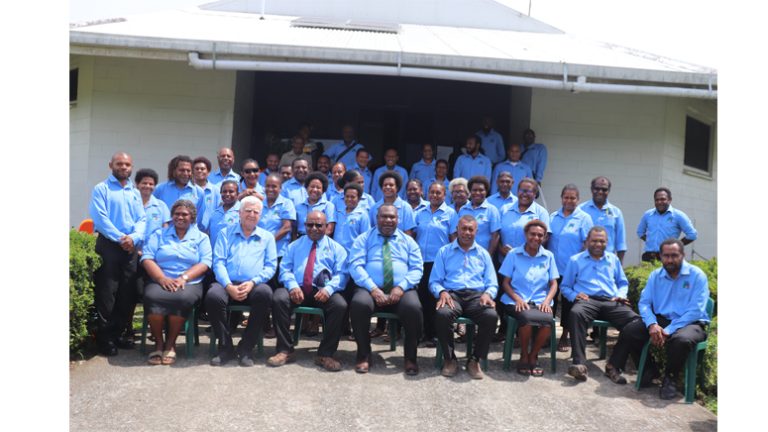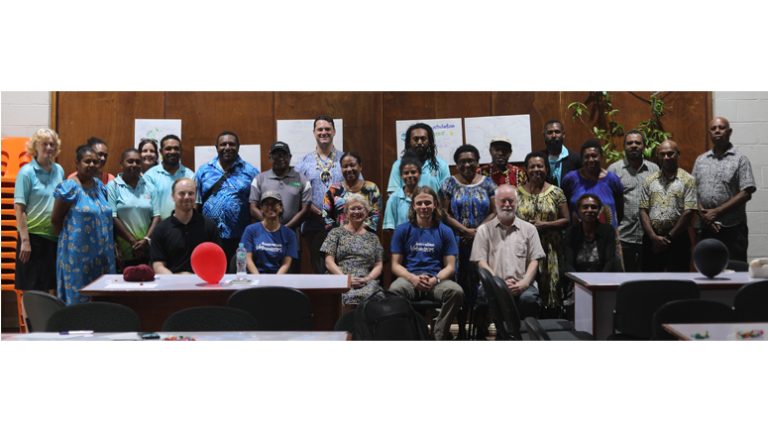Invasive weeds pose a significant threat to PNG’s biodiversity, agriculture, forestry, and rural livelihoods.
Although PNG has a strong history in biological control—having successfully released 19 natural enemies since the mid-20th century—no new introductions have been made since 2014.
Meanwhile, new weed species are emerging and spreading, driven in part by climate change.
To address this, six scientists from the National Agricultural Research Institute (NARI) joined government agencies and partners in Port Moresby on the 24th of September for a National Stakeholders Workshop on Invasive Species, aimed at strengthening Papua New Guinea’s capacity to manage the growing threat of invasive weeds.
The one-day workshop was hosted by New Zealand Bioeconomy Science Institute in partnership with the Department of Agriculture and Livestock (DAL) under the NENS program.
Recently NARI and NAQIA has shown interest to take on board to control invasive weeds in PNG and as a result this first national stakeholder workshop was held.
The Natural Enemy Natural Solutions (NENS) is an initiative of the Pacific Regional Environment Program (PREM) to facilitate the control of invasive weeds in the Pacific.
The program is led by the New Zealand Institute of Bio economy Science.
Eight Pacific Island countries—including Fiji, Samoa, Vanuatu, Cook Islands, Marshall Islands, Niue, Tuvalu, and Tonga—are already involved in the initiative, with PNG now moving toward active participation following the interest expressed.
The NENS approach provides a long-term, cost-effective, and environmentally friendly solution, using carefully selected natural enemies to suppress invasive plants without damaging local ecosystems, crops, or communities.
During the workshop, participants from NARI, NAQIA, DAL, CEPA, and NGOs discussed three key outcomes:
- Gaining a shared understanding of invasive weeds and their impacts across the Pacific.
- Identifying and prioritising the top 10 invasive weed species in PNG.
- Exploring future collaboration and institutional alignments to strengthen national weed management.
NARI staff from Bubia, Kerevat, Laloki, Aiyura, and Tambul research centres participated, bringing perspectives from across PNG’s diverse regions.
Speaking after the workshop, participants noted the urgency of coordinated action.
“Invasive weeds are silently undermining food production and rural livelihoods,” said Mr Rodney Aku from NARI’s Momase Regional Centre.
“Reviving the natural enemies approach can restore balance in our ecosystems and safeguard agriculture for future generations.”
The outcomes of the workshop are expected to guide national priorities on invasive weed management and position PNG as a renewed leader in the Pacific in applying biological control for sustainable agriculture and ecosystem resilience.





